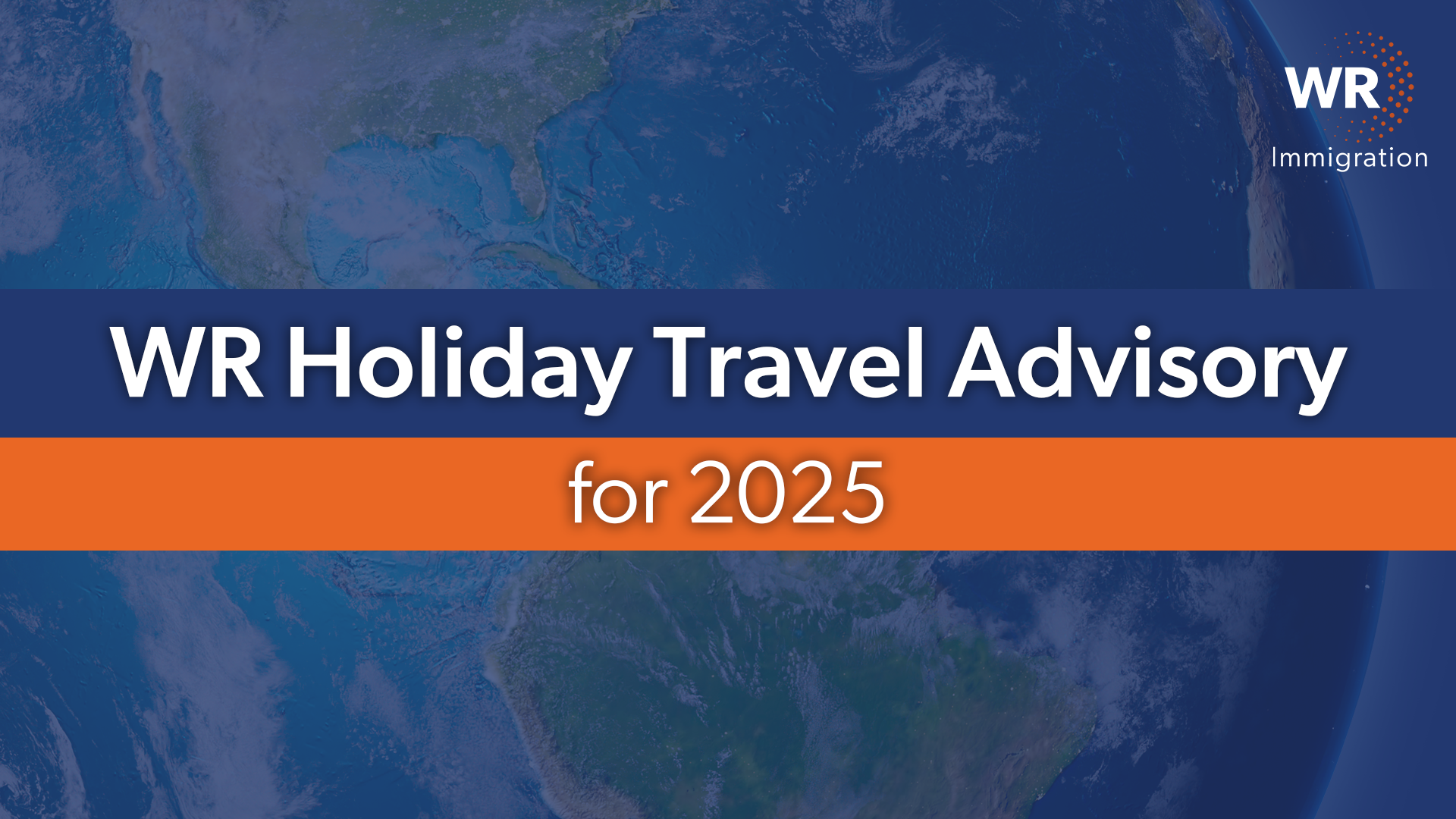This travel advisory summarizes the main issues and requirements for foreign nationals to ensure reentry to the U.S as seamless as possible.
If there are new specific issues and you need to schedule a consultation, please reach out to your WR attorney directly, and if unsure email us at Visalaw@wolfsdorf.com
Many WR Immigration clients are asking whether it’s advisable to return before January 20, 2025, when our new president is inaugurated and on balance I am advising yes, but this advisory applies to all regardless of your reentry date.
There may be new travel bans on day one so while I am advising clients not to panic, I am recommending returning before January 20, 2025, if possible.
We are anticipating heightened scrutiny of admissibility issues and for those researchers involved in sensitive technology, or for persons with arrests or convictions, please be ready to explain and document why you or your research or work is not a security risk or sensitive technology.
Immigration policies often change with little or no prior notice, so if unclear, or if your specific situation needs attention, please check with your WR Immigration professional BEFORE departure from the U.S. It will be helpful to send a short email explaining your issues, and attaching relevant documents such as arrest records etc. Generally, in order to re-enter the U.S., you will require a valid immigrant visa (green card) or a valid nonimmigrant visa, or other travel document such as a valid advance parole travel permit, in order to be able to apply for admission to the U.S.
Common non-exclusive list of documents required for re-entry to the U.S. include:
- Passport valid for at least six months beyond the date of intended departure from the U.S.;
- Valid U.S. visa (if your visa is expired, you will need to apply for a new visa at a U.S. Consular Post before you return and there are often delays in scheduling).
- Original Form I-797, Notice of Approval (for non-immigrant petition-based cases) and a full copy of your employer’s nonimmigrant petition. While the original Form I-797 is preferred, a copy of the Form I-797 is acceptable. Please note that if you have changed employers, in many instances you may present the Form I-797, Notice of Approval, for your current employer together with the nonimmigrant visa for a prior employer as long as they are in the same visa category.
- Evidence of maintenance of status (i.e., employment verification letter, recent paystubs, etc.) and/or evidence of relationship to primary beneficiary (i.e., birth or marriage certificate).
- Valid advance parole for pending adjustment of status applicants (this must be approved prior to departure, unless you have a valid H-1B/H-4 or L-1/L-2 visa).
- Valid/unexpired Lawful Permanent Resident Card (“Green Card”) for U.S. permanent residents.
U.S. Customs and Border Protection (CBP) has automated Form I-94 at air and seaports of entry. The paper form is no longer provided and a CBP admission stamp is not generally issued in the passport (unless specifically requested). The I-94 (record of admission) should be printed as soon as possible after admission to the U.S. from www.cbp.gov/I94. Please send a copy of your new I-94 to your team at WR each time you return from international travel.
Applying for a non-immigrant visa at a U.S. Consular Post:
- Nonimmigrant (NIV) appointments at many consular posts worldwide are usually backlogged during the holiday season. If subject to “administrative processing,” it may result in a delay of weeks to many months after the visa interview.
- Applicants between 14 and 79 years will generally have an in-person consular interview;
- Appointment scheduling and approximate visa issuance times can be checked online by clicking here.
- Any individual with a criminal arrest and/or conviction or immigration status issues should consult with immigration counsel prior to departing the U.S.
We wish you happy holidays and safe travels!


